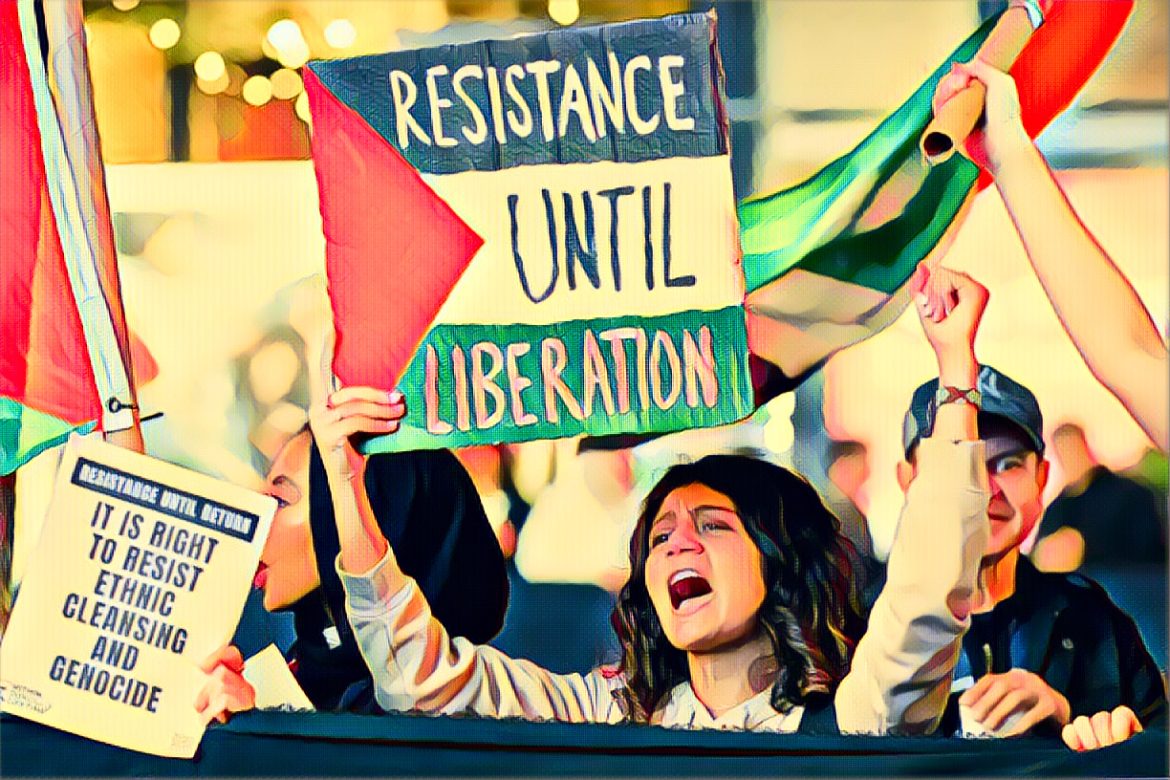The conflict between Israel and Palestine, known for its devastating impact and complex underpinnings, offers critical lessons for Africa in its journey toward peace, solidarity, and resilience. The recent upsurge of violence in the Middle East underscores the urgency of understanding conflict dynamics and the pathways to sustainable peace.
Unearthing Root Causes of Conflicts
The Israel-Palestine war reveals the catastrophic consequences of unaddressed historical grievances, political tensions, and territorial disputes. This enduring conflict highlights the futility of military solutions absent a comprehensive approach to peace, emphasizing the importance of addressing underlying issues rather than just symptoms.
Similarly, Africa confronts its challenges: historical injustices, ethnic hostilities, political strife, and economic disparities. Conflicts, such as the Tigray crisis in Ethiopia and the Boko Haram insurgency in Nigeria, mirror the complexities of the Middle East, with military interventions often falling short due to unaddressed root causes. A shift toward solutions embedding dialogue, respect for human rights, accountability, and inclusive governance is imperative for sustainable peace.
Solidarity and Strategic Partnerships
The Israel-Palestine war showcases the strength and potential of African solidarity. Nations across the continent have vocally supported the Palestinian cause, calling for the end of the Gaza blockade and condemning Israeli actions. Egypt’s role in mediating a ceasefire and South Africa’s stance in the UN Security Council underlines the strategic and moral reasons for this unity.
By standing with Palestine, African nations reaffirm their autonomy in global geopolitics, often challenging predominant narratives. This solidarity, however, extends beyond international relations, inspiring a collaborative spirit within Africa. Faced with common adversaries like poverty, climate change, and regional instability, African nations are reminded of the power of collective action, which can be significantly bolstered through strategic partnerships within and beyond the continent.
Indigenous Approaches to Peace
In seeking lasting peace, there’s a growing recognition of indigenous strategies grounded in local customs and communal harmony. Africa’s rich traditions offer homegrown conflict resolution mechanisms, seen in the Gacaca courts in Rwanda and South Africa’s Truth and Reconciliation Commission, which have facilitated healing and justice where conventional methods have faltered. However, these indigenous systems are not without challenges, necessitating a balance with universal human rights standards and safeguards against manipulation. Integrating these approaches with formal frameworks can create robust, culturally resonant pathways to peace.
Pan-Africanism: A Beacon for Unity
The concept of Pan-Africanism, emphasizing unity and cooperative progress, gains renewed relevance in the context of global conflicts. The Israel-Palestine situation underscores the need for a unified identity and purpose in international forums, something that has been a cornerstone of Pan-African ideology.
Despite challenges – political discord, resource constraints, and regional divides – the vision of Pan-Africanism remains a guiding force for Africa’s future. Revitalizing this philosophy requires committed leadership, citizen engagement, and resource mobilization, all geared toward a cohesive and prosperous Africa.
Embracing a Future of Resilience
The turbulence witnessed in the Israel-Palestine conflict is a stark reminder of the intricate realities of global peace and security. For Africa, the path forward entails drawing lessons from such global phenomena and inwardly reflecting on its strategies for conflict resolution, harnessing the power of solidarity, and tapping into its indigenous wealth of peace-building traditions.
By learning from these international crises and reinvigorating the principles of unity and strategic cooperation under the Pan-African umbrella, Africa can forge a resilient future capable of navigating the complexities of contemporary global politics and regional conflicts.
The task for African states is not merely to observe and react to global conflicts but to proactively build a narrative of peace, learn from the past, and strategize for a sustainable future. In this light, the story of the Israel-Palestine conflict serves as a lesson and a catalyst for continental introspection and transformation.


